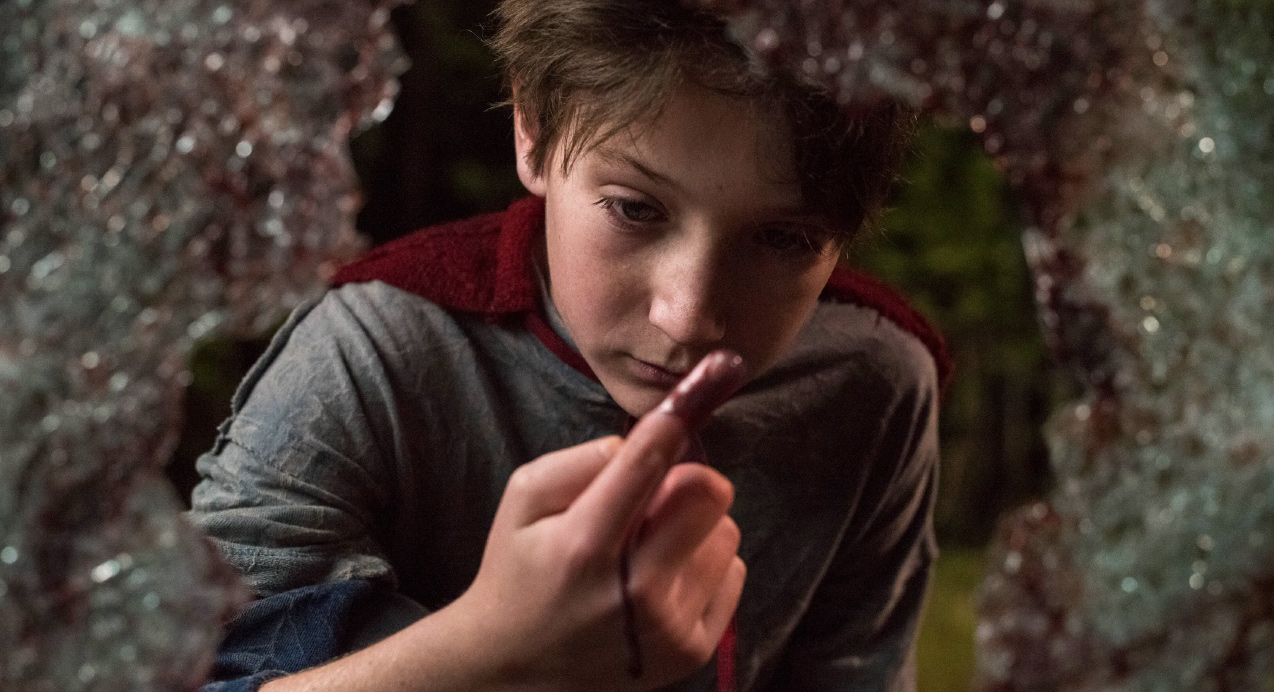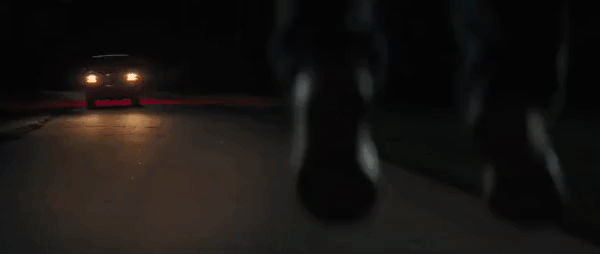Superman’s jizz creates a monster in Brightburn, a one-note but chillingly effective horror movie

The origins of Superman are reimagined as a horror story in Brightburn, a curious experiment in genre recalibration. It is a rather cynical coming-of-age film, says Luke Buckmaster, but also a tale of parental yearning with a surprising amount of pathos.
What are the most effective parental techniques to deal with the realisation that your child is the spawn of Satan? That is the $64,000 question at the heart of every ‘they didn’t put Lucifer impregnating me on the brochure’ film, from the crib in Rosemary’s Baby to the crossbow massacre scene in Let’s Talk About Kevin. It is also a core question in Brightburn, which swaps the devil’s jizz for Superman’s in service of a curious experiment in genre recalibration and expectation realignment.
Screenwriters Brian Gunn and Mark Gunn imagine the pickle humankind would be in if the Man of Steel crash-landed on earth, not as a kind soul who saves old ladies from flaming buildings and rescues babies from ledges but as a malevolent force intending to burn our world to the ground. The film’s title is a tangential reference to the last son of Krypton, as explained by The Hollywood Reporter:
“The fact that Brightburn is the code name for the superpowered boy, the name of the town in Kansas and the title of the film is a reference to the Superman TV series Smallville (2001-2011), which also took a look at the growing problems of a superpowered teenager.”

Much has been made about director David Yarovesky supposedly bending, twisting, revising, maybe even satirising the superhero mythos by flipping Superhero’s origins story into fodder for a bloodbath horror movie. To an extent this is true, though Brightburn’s premise isn’t deeply layered and the film certainly stops short of satire. Much of it is one-note, in fact, adhering to a scene-by-scene structure that solicits from the audience the following pattern of responses, evoked again and again as if we didn’t get it the first time: oh gosh that kid looks evil; oh gosh he is evil; oh holy mother of God what that feral little shit just did was really really evil.
The kid is 12-year-old Brandon Breyer (Jackson A. Dunn), a human-looking alien who fell to earth as a baby. His arrival answered the prayers of his parents – Tori (Elizabeth Banks) and Kyle (David Denman), who were unable to conceive – then eventually those prayers transformed into bloody recriminations. Brandon is at that age when weird things start happening to his body and his parents act strange also – his dad delivering an awkward speech, for instance, about something called masturbation. Schoolyard shenanigans don’t help, particularly a class team trust exercise that ends badly – in a bone-crunching kind of way.
All this paints a somewhat cynical coming-of-age story. And also, importantly, given the prominence of Tori and Kyle in the narrative, a tale of parental yearning that resonates with a surprising amount of pathos – thanks in no small measure to Elizabeth Banks and David Denman’s performances. You feel for them. It mustn’t be easy when you really want a child but can’t have one, and it’s surely even harder when you end up with a human-looking devil alien thing.
One gets the sense this ghoulish miscreation would happily mainline holy water rather than run from it, just to make a point. Jackson A. Dunn plays Brandon in a wisely restrained manner, with Michael Dallatorre’s dark and gluggy cinematography and the film’s stereotypically nerve-jangling soundscape doing a significant amount of the work for him.
While Brightburn’s narrative structure is repetitive, there’s a pared-back elegance to it, and this elegance is shared in some aspects of its composition. Note, for instance, the way the film’s opening shot – of the Breyer family letterbox and homestead – uses focus pulling to switch emphasis from the foreground (the letterbox) to the background (the house). Like some of the best examples of focus pulling, this is in effect two shots in one. The point is made that what’s in front of us is not necessarily what we observe. This is reflected in a dramatic sense through Tori and Kyle’s shocking realisation that the child they thought they knew turned out to be, well, something different.
Is there a support group for parents who might have accidentally raised the Prince of Darkness? The monarch of hell? The author of evil? The Beelzebub of Brightburn? The, er, really really bizarro Superman? Four out of five of those rhetorical questions evoke biblical language. Maybe this, ultimately, is Brightburn‘s distinguishing feature: it’s Satan’s spawn, but it’s secular.

















